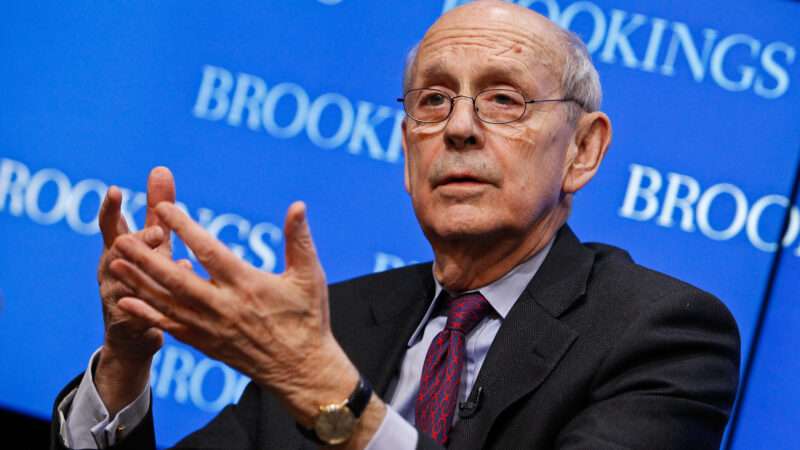
When the Supreme Court blocked enforcement of the Biden administration's vaccinate-or-test rule for private employers last Thursday, the response from the three dissenters was familiar. Justices Stephen Breyer, Sonia Sotomayor, and Elena Kagan argued that courts should not override the judgment of the government experts who know best how to deal with the COVID-19 pandemic.
The dissenters were right that the courts are not charged with formulating public health policies. But the courts are charged with deciding whether those policies are legal, and they forsake that responsibility when they reflexively defer to politicians and bureaucrats who claim an emergency justifies unprecedented restrictions on freedom.
In this case, the Occupational Safety and Health Administration (OSHA) issued an "emergency temporary standard" (ETS) demanding that companies with 100 or more employees require them to be vaccinated against COVID-19 or wear face masks and submit to weekly virus testing. An ETS allows OSHA to avoid the notice, comment, and hearing requirements of the usual rule-making process, but only if the agency shows that its regulations are "necessary" to protect employees from a "grave danger" in the workplace.
"Courts have not been elected [and] have no epidemiological expertise," Kagan said during oral arguments on January 7. "Why in the world would courts decide this question?"
As Justice Neil Gorsuch noted then and in his concurring opinion last week, "this question" was "not how to respond to the pandemic, but who holds the power to do so." Two years into the pandemic, Congress has not addressed the issue of vaccine mandates, except for a December 8 Senate resolution aimed at overturning OSHA's edict.
In the half-century since it was established, OSHA has never before encouraged or required employers to make vaccination mandatory—a solution that, unlike other workplace safeguards, extends beyond the workplace. And while OSHA usually requires employers to pay for workplace safeguards, its COVID-19 ETS allows them to make employees foot the bill for virus testing, the better to encourage vaccination.
The crux of the legal argument between the majority and the dissenters in this case was the question of when COVID-19 qualifies as a workplace hazard, as opposed to a risk that Americans face throughout the day, which goes beyond OSHA's statutory mission. While the dissenters were willing to let OSHA define that hazard in general terms, justifying a broad solution covering 84 million employees, the majority thought the agency was obliged to be more specific and discriminating, taking into account the wide variation in risk across industries and workplaces.
The Court confronted a similar issue last August, when it blocked the eviction moratorium that the Centers for Disease Control and Prevention had imposed on landlords across the country. The question was not whether the policy was a wise response to COVID-19 but whether Congress had given the agency the authority it claimed, as required by the separation of powers and the rule of law.
Unlike federal agencies, states have broad authority to protect public health under the "police power" they retained when the Constitution was ratified. But that power has limits, as illustrated by the Supreme Court's injunctions against pandemic-inspired restrictions on religious gatherings.
As in the OSHA and CDC cases, the issue was not whether the challenged policies were sensible or effective. It was whether they violated the First Amendment by discriminating against religious activities.
Breyer, Sotomayor, and Kagan dissented in all these cases, arguing that the Court lacked the requisite expertise to evaluate policies addressing a public health emergency. "Justices of this Court play a deadly game in second guessing the expert judgment of health officials," Sotomayor warned when the Court blocked New York's restrictions on houses of worship in 2020.
"Members of this Court are not public health experts, and we should respect the judgment of those with special expertise and responsibility in this area," the majority conceded in that case. "But even in a pandemic, the Constitution cannot be put away and forgotten."
© Copyright 2022 by Creators Syndicate Inc.
The post OSHA's Vaccine Mandate Illustrates the Perils of Reflexively Deferring to Government Experts appeared first on Reason.com.







